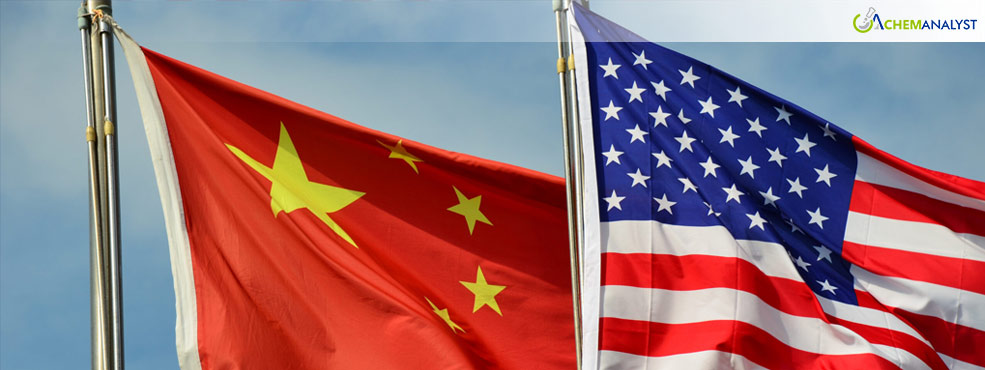Welcome To ChemAnalyst

Businesses in other countries across multiple sectors are optimistic about a surge in exports and investments following the re-election of Donald Trump as the US President. Industry leaders believe that Trump's policies, particularly his stance on China and his pro-business agenda, will offer a significant competitive edge to other countries in the US market. Key sectors such as chemicals, textiles, lithium-based battery, and pharmaceuticals are expected to benefit from these developments.
India’s Optimism
Kumar Mangalam Birla, India’s one of the biggest conglomerates Aditya Birla Group’s Chairman, has expressed confidence in the growth of Indian businesses under Trump’s administration. Speaking at a program in Mumbai, he highlighted that the group is keen to expand its presence in the US market.
“We are looking forward to investing more in the US. Going by his (Trump's) past record, he is positively inclined towards India and has a strong rapport with Indian Prime Minister Narendra Modi,” Birla said.
Aditya Birla Group is already a key player in the US metals and chemicals sectors through subsidiaries like Novelis and Aditya Birla Chemicals. They are further strengthening their foothold with an investment of $50 million to set up a manufacturing and research centre in Texas. Trump’s administration is seen as pro-business, with policies that favor investments and deregulation.
India’s textile industry is similarly optimistic. With Trump’s focus on reducing reliance on Chinese imports and his “America First” approach, the Indian textile sector especially in Gujarat, expects a surge in demand for products like home textiles. The US is one of the largest markets for Indian chemicals, and with Trump’s pro-trade policies, Gujarat’s chemical industry is expected to gain a larger market share in the US.
U.S Graphite Woes
China is world’s largest producer of graphite, a key mineral in EV sector. Currently, 78% - 80% of the world’s production is controlled by China. It also holds the world's largest graphite reserves estimated at 78 million metric tons. With Trump’s re-election, China’s hold in the graphite market is set to shake up. Biden-Harris administration has already imposed a hefty 25% tariff increase by 2026. This decision comes as part US’s broader effort to reduce dependence on foreign suppliers, particularly China.
Additionally, starting in 2024, the tariff rate on lithium-ion EV and non-EV batteries will jump from 7.5% to 25%.
The U.S. has also made significant strides in onshoring battery manufacturing and critical mineral extraction. President Biden’s administration has invested heavily in domestic supply chains. As part of this push, the Inflation Reduction Act, which provides $40 billion in loan authority for clean energy projects, is also aimed at bolstering U.S. production capabilities.
Now, Should Trump regain the presidency in early 2025, experts warn that his aggressive trade policies will escalate U.S.-China tensions. And in turn further disrupt global supply chain for critical minerals.
Trump has long been a critic of China’s dominance in various industries. Recently, he vowed to impose a 200% tariff on Chinese-manufactured vehicles imported from Mexico. If he follows through on this plan, it could potentially lead to a major shift in sourcing strategies.
Countries with abundant graphite reserves, including Australia, Brazil, Canada, and several African nations, stand to benefit from this shift. These countries are well-positioned to capitalize on the growing demand for graphite as the global market adjusts to new trade realities. Companies involved in graphite exploration, production, and development could find new opportunities to expand their reach, especially in the U.S. market, which is expected to see a surge in demand for domestically sourced materials.
The growing emphasis on sourcing critical minerals from non-Chinese suppliers aligns with the broader geopolitical trend of diversifying supply chains to mitigate risks associated with over-reliance on any single country. For U.S. companies, this could mean increased access to untapped markets and new partnerships, particularly in regions rich in critical minerals.
We use cookies to deliver the best possible experience on our website. To learn more, visit our Privacy Policy. By continuing to use this site or by closing this box, you consent to our use of cookies. More info.
